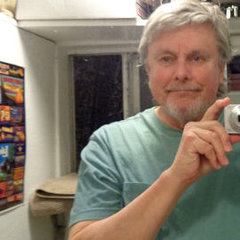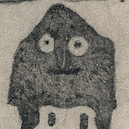-
Content count
2,746 -
Joined
-
Last visited
-
Days Won
8
About Mark Foote
-
Rank
Plum Cuckoo
Recent Profile Visitors
14,135 profile views
-
Regarding femurs and other "relics": Walpurgis Night an abbreviation of Saint Walpurgis Night, also known as Saint Walpurga's Eve (alternatively spelled Saint Walburga's Eve), is the eve of the Christian feast day of Saint Walpurga, an 8th-century abbess in Francia, and is celebrated on the night of 30 April and the day of 1 May. This feast commemorates the canonization of Saint Walpurga and the movement of her relics to Eichstätt, both of which occurred on 1 May 870.[7] Saint Walpurga was hailed by the Christians of Germany for battling pest, rabies, and whooping cough, as well as against witchcraft". Christians prayed to God through the intercession of Saint Walpurga in order to protect themselves from witchcraft, as Saint Walpurga was successful in converting the local populace to Christianity. In parts of Europe, people continue to light bonfires on Saint Walpurga's Eve in order to ward off evil spirits and witches. Others have historically made Christian pilgrimages to Saint Walburga's tomb in Eichstätt on the Feast of Saint Walburga, often obtaining vials of Saint Walburga's oil. It is suggested that Walpurgis Night is linked with older May Day festivals in northern Europe, which also involved lighting bonfires at night, for example the Gaelic festival Beltane. Local variants of Walpurgis Night are observed throughout Northern and Central Europe in the Netherlands, Germany, the Czech Republic, Slovakia, Slovenia, Sweden, Lithuania, Latvia, Finland, and Estonia. In Finland, Denmark and Norway, the tradition with bonfires to ward off the witches is observed as Saint John's Eve, which commemorates the Nativity of Saint John the Baptist. (Wikipedia) I can just imagine the remedies Walpurga applied to cure rabies and whooping cough. Get your Saint Walburga's oil here, nothing like it for making those old femur crowns shine! Meanwhile: Beltane or Bealtaine (/ˈbɛl.teɪn/; Irish pronunciation: [ˈbʲal̪ˠt̪ˠənʲə], approximately /ˈb(j)ɒltɪnə/ B(Y)OL-tin-ə) is the Gaelic May Day festival, marking the beginning of summer. It is traditionally held on 1 May, or about midway between the spring equinox and summer solstice. Historically, it was widely observed in Ireland, Scotland, and the Isle of Man. ... it marked the beginning of summer and was when cattle were driven out to the summer pastures. Rituals were performed to protect cattle, people and crops, and to encourage growth. Special bonfires were kindled, whose flames, smoke and ashes were deemed to have protective powers. The people and their cattle would walk around or between bonfires, and sometimes leap over the flames or embers. All household fires would be doused and then re-lit from the Beltane bonfire. These gatherings would be accompanied by a feast, and some of the food and drink would be offered to the aos sí. Doors, windows, byres and livestock would be decorated with yellow May flowers, perhaps because they evoked fire. (Wikipedia) Get yer ritual gear on, and proceed with the bonfires!
-
I'll have to look for it.
-
Down in the catacombs, with the surrogate corpse...
-
If you made that up, can you tell me what sherry you are drinking these days, please (I quite like it)?
-
Mr. Downer Himself: … the Blessed One addressed the monks. “Whoever develops mindfulness of death, thinking, ‘O, that I might live for a day and night… for a day… for the interval that it takes to eat a meal… for the interval that it takes to swallow having chewed up four morsels of food, that I might attend to the Blessed One’s instructions. I would have accomplished a great deal’–they are said to dwell heedlessly. They develop mindfulness of death slowly for the sake of ending the effluents. “But whoever develops mindfulness of death, thinking, ‘O, that I might live for the interval that it takes to swallow having chewed up one morsel of food… for the interval that it takes to breathe out after breathing in, or to breathe in after breathing out, that I might attend to the Blessed One’s instructions. I would have accomplished a great deal’–they are said to dwell heedfully. They develop mindfulness of death acutely for the sake of ending the effluents. “Therefore you should train yourselves: ‘We will dwell heedfully. We will develop mindfulness of death acutely for the sake of ending the effluents.’ That is how you should train yourselves.” (Maraṇassati Sutta AN 6:19, tr Thanissaro Bhikkyu; Pali Text Society AN volume III p 218; I think I prefer I. B. Horner's "cankers" over Thanissaro Bhikkyu's "effluents") And why is that, you ask. I would say that is because the interval that matters is like the one immediately before falling asleep. Something I hope to post to my own site soon: Just before falling asleep, the ability to act by volition shuts down, and consciousness catalyzes activity necessary to the movement of breath by taking place at a particular location or at successive locations in the body. At that time, the placement of consciousness alone coordinates activity, and if the mind should attempt to wrest the placement of consciousness back under control, a hypnic jerk results that interrupts sleep. I sit down first thing in the morning and last thing at night, and I look to experience activity of the body through a placement of attention like that just before sleep. As a matter of daily life, just to touch on such experience, as occasion demands--that's enough. That kind of placement of attention can be experienced in "the interval that it takes to swallow having chewed up one morsel of food", or "the interval that it takes to breathe out after breathing in, or to breathe in after breathing out".
-
Abbot phone-whips monk enters phone-whip samadhi cat yawns and stretches
-
I lived above Hamburger Mary's bar and grill in San Francisco in '80's. Mary's was a part of the LGBTQ scene at that time, like the Stud across the street. A quick check reveals Hamburger Mary's lives, they even have a website showing seven or more locations nationwide--in SF, no more. I loved to go to Mary's after work, have a beer, and play the pinball machines in the back. They had a DJ, and sometimes I'd be dancing in the bar, I'd be the only one dancing in the bar. I got hit up by the gay blades a couple of times, I'll admit I kind of resented that they couldn't tell that wasn't my persuasion off the top. I remember the DJ Ted, whom everyone called Tess, telling me that I should try it sometime I might like it. I remember two guys in long dresses in the bar once, I asked them what they were up to, they were just enjoying the experience and I appreciated their complete honesty. Then there's our bringer of test cases, edge cases, the enlightening surrogate corpse, who says: It is wonderful for men to use their dicks as powerful symbols of their masculinity. It is also wonderful for women to use their dicks as powerful symbols of their femininity. There is no contradiction between these. Both can be affirmed. My life since 25 has been about learning to move from the inside out. They do an exercise in Aikido where a practitioner is blindfolded, and the students of the dojo attack the blindfolded individual, sometimes one at a time and sometimes all at once. For me the exercise was instead staying upright on the dance floor at Mabuhay Gardens on Broadway. An example of Mabuhay I've posted before--you can just catch a glimpse of the slamming going on at 44 seconds--those folks aren't bending over the stage 'cause they like bending: One thing I've found is that the only real way to relate to people is from that place of inner awareness, like in the Aikido exercise. Oftentimes there's no there there in the populace at large, as Gertrude Stein once said of Oakland. That makes it hard to relate, especially if someone has decided they "like it" and having a heart be damned. That's prevalent in the culture at large, but especially evident sometimes in the gayer sections of San Francisco. Anyway, I feel I've benefited greatly from the conversation here--thanks Maddie, thanks blue eyes, thanks transmogrified griffin. Thanks, Luke, and that cat wherever it went. Thanks, everybody!
-

Is 'just sitting' a post-enlightment practice?
Mark Foote replied to Vajra Fist's topic in Buddhist Discussion
Gautama spoke of cessation, in the context of thoughts initial and sustained with regard to the state of mind: (One) makes up one’s mind: Contemplating impermanence I shall breathe in. Contemplating impermanence I shall breathe out. Contemplating dispassion I shall breathe in. Contemplating dispassion I shall breathe out. Contemplating cessation I shall breathe in. Contemplating cessation I shall breathe out. Contemplating renunciation I shall breathe in. Contemplating renunciation I shall breathe out. (SN V 312, Pali Text Society Vol V p 275-276; tr. F. L. Woodward; masculine pronouns replaced, re-paragraphed) The thoughts he described, he said were a part of his way of living. "Contemplating cessation"--the cessation of the "activities", which are the actions of speech, body, and mind that take place as a result of "determinate thought": …I have seen that the ceasing of the activities is gradual. When one has attained the first trance [first meditative state], speech has ceased. When one has attained the second trance, thought initial and sustained has ceased. When one has attained the third trance, zest has ceased. When one has attained the fourth trance, inbreathing and outbreathing have ceased. ... Both perception and feeling have ceased when one has attained the cessation of perception and feeling. (SN IV 217, Vol IV p 146) I'm convinced Gautama touched on "the cessation of inbreathing and outbreathing" as a regular part of his way of living, that he sat until he attained such a cessation and the subsequent "survey-sign of the concentration", and that by means of the "survey-sign" he could touch on "the cessation of inbreathing and outbreathing" in his contemplation of cessation in daily living. But say--what did you mean by cessation? -
That works, although it's a tad more person to person than a heart to indicate a love of what was written. You're so welcome! If you're interested, there are some amazing photos of Clear Lake and Mount Konocti, here (and some duds, lots of duds, actually, but what's good is very good)--if you're not on Facebook, just click the "x" in the upper right-hand corner of the "See More on Facebook" pop-up.
-
with Issa's blessings the cat goes out, comes back in the doorman gets pissed
-
I've never found that to be true.
-
This. This right here might be at the core of a majority of vexation with regards to the topic. For individuals who have not personally experienced a significant enough decoupling of the societally enforced equivalency of the two, i guess i can see how it might be inconceivable that such a thing even exists. Dao Bums needs a "heart" icon. Lacking which, I give you a quasi-mystical photo of the lake and mountain I live next to, in appreciation. (photo by Stephanie Espinosa)
-
I'm completely fooled, Nungali!
-
Apech, on the left...
-
There are a lot of folks who swear by "pure awareness" as the essential element of sentient being. Something like that. I think of Nisargadatta: My Guru ordered me to attend to the sense 'I am' and to give attention to nothing else. I just obeyed. I did not follow any particular course of breathing, or meditation, or study of scriptures. Whatever happened, I would turn away my attention from it and remain with the sense 'I am'. It may look too simple, even crude. My only reason for doing it was that my Guru told me so. Yet it worked! ("I Am That", Chapter 75, p. 375) 'You are not your body, but you are the consciousness in the body, because of which you have the awareness of 'I am'. It is without words, just pure beingness. Meditation means you have to hold consciousness by itself. The consciousness should give attention to itself. (Gaitonde, Mohan (2017). Self - Love: The Original Dream (Shri Nisargadatta Maharaj's Direct Pointers to Reality). Mumbai: Zen Publications. ISBN 978-9385902833) Or Dogen: Therefore, …take the backward step of turning the light and shining it back. (Eihei Dogen, “Fukan zazengi” Tenpuku version, trans. Carl Bielefeldt, “Dogen’s Manuals of Zen Meditation”, pg 176) I used to write about the location of awareness, but a friend of mine felt that awareness is all encompassing, throughout the universe. Because of him, I switched to writing about the placement of attention, but there's a trick (isn't there always!)--the placement of attention out of necessity in the movement of breath, with the activity of the body following entirely from the location of awareness, such as occurs in the moment before falling asleep. As a matter of daily life, just to touch on such experience, as occasion demands--that's enough.






_YamiBakuraPicsImagesScreencapsandScans.thumb.jpeg.9045a4d7b9219561c2baf9bde301e522.jpeg)











